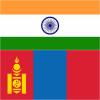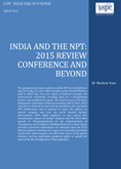India, Mongolia: Spiritually Connected Powers of Asia
On May 16 Prime Minister Narendra Modi would twit: ‘First Indian Prime Minister is visiting Mongolia after 60 years of our diplomatic relation’. If China is repositioning itself in the Silk Route (ancient India was a major link too) through larger economic thrust, India has to travel in the same breadth and length with the teachings and philosophy of Buddhism in North and East Asia, as Buddhism flourished prior to the Silk Route era.








